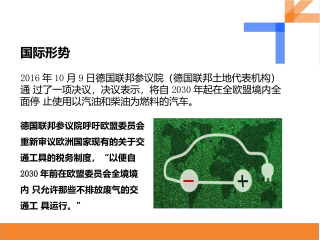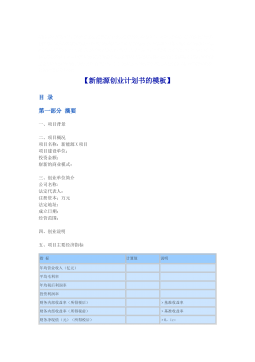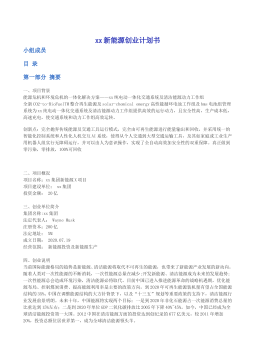“80后”知识型员工组织承诺影响因素研究
VIP免费
浙江财经学院硕士学位论文
I
摘 要
二十一世纪是充满竞争的世纪,企业在激烈竞争中的制胜法宝在于赢得人才。
“80 后”知识型员工已逐渐成为企业的重要力量,谁赢得了他们,谁就会在激烈的
市场竞争中赢得优势。但企业要想“80 后”——这一未来的知识型中坚员工们产生
对组织的高度忠诚,并通过忠诚和敬业创造出较高的绩效,也并非是一件容易的事。
因为“80 后”知识型员工是我们这个时代的一群特殊青年,他们生存于信息产业高
速发展的特定历史阶段,成长在我国经济快速发展、国家实施独生子女政策及高校
教育制度改革的大背景下,父母的宠爱、良好的教育、优厚的物质条件及多元化的
社会文化等,造就了他们独特的个性与思维方式。因此,他们对工作所持的态度、
要求以及他们对工作所赋予的意义等与前辈员工有很大的不同,这增加了企业的管
理难度。另外,“80 后”知识型员工还处在今日物质享受日盛、个人主义逐渐扩张
的时代,他们强调自我实现,其对所服务单位的忠诚度也变得不高。所以,企业只
有根据“80 后”知识型员工的特点和需求动机,不断调整自身管理策略,努力提高
他们的工作积极性及忠诚度,才能在运营中成就双赢。
鉴于此,本研究以“80 后”知识型员工为对象,以衡量员工忠诚度的重要指标
——组织承诺为主要切入点,通过实证调查,了解“80 后”知识型员工的组织承诺、
工作价值观和工作特征现况,并探讨了员工的工作价值观、工作特征对其组织承诺
的影响,以期能为企业制定有效的管理措施提供指导。
本文采用问卷调查法,使用组织承诺量表、工作价值观量表、工作特征量表和
个人特征量表四个研究工具进行实证资料收集,运用随机抽样的方式,共得到 283
份有效问卷。本研究利用 SPSS 软件对样本进行统计分析,所涉及到的统计方法主
要包括描述性统计、信效度分析、因子分析、独立样本 T检验、单因素方差分析、
Pearson 相关分析和多元线性回归分析等,并得到以下五个主要结论:
1.“80 后”知识型员工的组织承诺和工作特征正向程度不高,但工作价值观正
向程度较高。
定性分析结果表明,“80 后”知识型员工对组织的向心力持肯定态度,但整体
的承诺水平仅处于一般水平,其中,价值承诺程度最低。而员工所在岗位已基本具
浙江财经学院硕士学位论文
II
备激励型工作特征,但程度也不高,技能多样性特征处于最低水平。在工作价值观
方面,则是积极正向,他们最重视的五个项目是“获得新知识和技术”、“工作环境
不危害身心健康”、“通过工作肯定自我”、“有成就感”、“同事间和睦相处”。
2.部分个人特征变量对“80 后”知识型员工的组织承诺有显著影响。
个人特征变量中,教育程度和职位对组织承诺无显著影响,但性别、婚姻状况、
任职时间和工作类别变量对组织承诺产生显著影响作用。在这几个对组织承诺产生
显著影响的个人特征变量中,性别和婚姻状况是企业无法控制的,但任职时间和工
作类别与企业有着直接的联系,因此,企业应该重视“80 后”知识型员工在这两个
变量上组织承诺程度的不同,了解产生差异的根本原因,从而制定有效的改进措施,
从而提高员工整体的组织承诺程度。
3.工作价值观在个人特征变量上存在差异,并对员工的组织承诺产生影响。
“80 后”知识型员工的工作价值观在性别、婚姻状况、教育程度、职位和任职
时间上存在显著差异,同时,工作价值观也会对组织承诺产生显著影响,其中,“自
我实现”因子对价值承诺有正向影响作用,“组织安全与休闲健康”对努力承诺有显
著正向影响。因此,企业在招聘时可通过考查应聘者的工作价值观来预测其将来对
组织的承诺程度,并根据员工的个人特征变量把握其工作价值观变化。
4.工作特征对“80 后”知识型员工的组织承诺有重要影响。
独立样本 T检验和单因素方差分析的结果显示,“80 后”知识型员工的工作特
征在性别、职位和工作类别三个个人特征变量上存在显著性差异。另外,工作特征
对员工的组织承诺程度有显著影响,其中,“任务处理完美性”和“技能多样性”对
价值承诺有显著正向影响,“工作重要性”和“技能多样性”对努力承诺有着显著正
向影响作用,而“技能多样性”因子对留职承诺有显著负向影响。综合而言,企业
可从工作设计入手,加强“80 后”知识型员工所在岗位的激励型工作特征程度,进
而达到提高员工组织承诺的目的。
5.工作特征对员工组织承诺的影响程度要大于个体的工作价值观。
从多元线性回归分析结果中,我们可以推出:工作特征对“80 后”知识型员工
组织承诺的影响程度要大于员工的工作价值观。因此,管理者若想提高“80 后”知
识型员工的组织承诺,可以主要从工作设计入手。
关键词:企业;“80 后”知识型员工;组织承诺;工作价值观;工作特征
浙江财经学院硕士学位论文
III
ABSTRACT
Winning talents is the subduing trump of enterprises to get advantages in fierce
competition in the 21st century. Post-80’s knowledge workers have become an
important force for enterprises, who win them will win competitive advantages in the
intense competition. But it is not easy for companies to make them be loyal to the
organization and receive high performance via loyalty and hard working. For the
post-80’s knowledge workers are the special youth of our times. They grew up under a
particular historical background that Chinese information industry and national
economy have been booming development, government started to practice one-child
policy in 1983, our higher education system suffered reform and so on. Their special
personalities and way of thinking were caused by what they have experienced, including
great economic condition, good education, parents’ special attention and multi-cultural
society. Then, their work attitude, job requirement, purpose of working and so on is
different from the older employees, which makes companies’ regulation difficult.
What’s more, post-80’s knowledge workers are also living in an age of
emphasizing on creature comforts and individualism. Thereby, they pay special
attention to self-fulfillment and their loyalty to organization is in a low level.
So, only if our enterprises improve post-80’s knowledge workers’ working
enthusiasm and loyalty through adjusting management strategies to their characteristics
and demands, can enterprises get win-win in operations.
The paper, therefore, focuses on post-80’s knowledge workers and originates in
organizational commitment an important index to measure employee loyalty. There are
two major points that the author wants to discuss. For the first part, the thesis has a
research on the existing circumstances about organizational commitment, work values
and job characteristics of the post-80’s knowledge workers. For the second part, the
thesis discusses whether work values and job characteristics have significant influences
on employees’ organizational commitment. The purpose of this paper is to provide
companies with useful guidance.
The author makes use of organizational commitment, work values, personal and
job characteristics scales to collect data information using random sampling. Finally, it
has gotten 283 pieces of valid questionnaire. This paper applies the application of
SPSS15.0 to analyze including methods of descriptive statistics, reliability and validity
浙江财经学院硕士学位论文
IV
analysis, factor analysis, independent samples T-test, single-factor analysis of variance,
Pearson correlation analysis and multiple linear regression analysis. The major findings
of this study are as follows:
1.The organizational commitment and job characteristics of 80’s knowledge
workers are not at a high positive degree. But the positive degree of work values is high.
2.Some personal characteristics have significant impacts on 80’s knowledge
workers organization commitment.
3.Some personal characteristics have a significant impact on 80’s knowledge
workers work values. And their work values also have a significant impact on
organizational commitment.
4.The job characteristics of 80’s knowledge-based staff have a major impact on
organizational commitment.
5.The influence of job characteristics on organizational commitment is greater
than caused by work values.
Key words: enterprise; post-80’s knowledge workers; organizational commitment;
work values; job characteristics
浙江财经学院硕士学位论文
V
目 录
第一章 绪论..............................................................................................................................1
第一节 研究背景 ..................................................................................................... 1
第二节 研究目的与意义 ......................................................................................... 2
第三节 可能的创新点 ............................................................................................. 3
第四节 论文结构安排 ............................................................................................. 3
第二章 国内外相关研究综述.........................................................................................5
第一节 “80 后”知识型员工相关研究 ................................................................ 5
第二节 组织承诺相关研究 ..................................................................................... 8
第三节 组织承诺与工作价值观 ........................................................................... 14
第四节 组织承诺与工作特征 ............................................................................... 18
第五节 以往研究简要评述 ................................................................................... 21
第三章 研究设计...................................................................................................23
第一节 研究构想及论文框架 ............................................................................... 23
第二节 研究假设 ................................................................................................... 24
第三节 变量测量工具 ........................................................................................... 24
第四节 研究对象和抽样方法 ............................................................................... 25
第五节 数据统计分析方法 ................................................................................... 26
第四章 实证分析...................................................................................................27
第一节 回收样本资料分析 ................................................................................... 27
第二节 量表信、效度检验 ................................................................................... 28
第三节 组织承诺及相关影响因素现况分析 ....................................................... 34
第四节 相关变量在个人特征上的差异分析 ....................................................... 38
第五节 相关影响因素与组织承诺的简单相关分析 ........................................... 45
第六节 组织承诺影响因素分析 ........................................................................... 46
第五章 结论与建议 ..............................................................................................52
第一节 假设验证与研究结论 ............................................................................... 52
第二节 管理建议 ................................................................................................... 54
浙江财经学院硕士学位论文
VI
第三节 研究不足与后续研究建议 ....................................................................... 57
参考文献......................................................................................................................58
附录 ...............................................................................................................................64
附录一:方差齐性检验结果........................................................................................ 64
附录二:“80 后”知识型员工组织承诺影响因素调查问卷................................... 65
致 谢.............................................................................................................................68
浙江财经学院硕士学位论文
1
第一章 绪论
第一节 研究背景
知识经济昌盛的 21 世纪,企业之间的竞争必然是人才的竞争。在土地、劳动力
和资本逐一粉墨登场之后,以知识为标志的人力资本正在成为决定企业命运的关键
性生产要素。因此,对人才的争夺,已日益成为企业竞争的主战场。由于“80 后”
知识型员工掌握全新的知识和技能,且是未来职场的主力军,因此,在不久的将来,
他们将成为企业人才竞争的主要焦点,企业只有吸引、激励并留住他们中的优秀分
子,才能在激烈的市场竞争中获胜。
但企业要想招到“80 后”知识型员工后,保持他们对组织的高度忠诚,并努力
创造出高绩效,也不是一件容易的事,因为特殊的成长背景,注定使他们成为较难
管理和缺乏忠诚度的一代。“80 后”知识型员工由于成长在我国经济和信息产业都
高速发展的特定历史阶段,且赶上国家实施计划生育政策和高校扩招,思想的自由
表达、父母的宠爱、良好的教育等造就了他们独特的个性:自信、独立、追求自我、
他人认可意识强、富创造性、学习动机和成就动机强等。因此,企业不能再指望他
们能象前辈员工一样绝对服从、忠诚、内敛、以团队为重,也不能仅凭过去的经验
来管理“80 后”新人,如何有效地管理他们已成为很多企业面临的新课题。另一方
面,“80 后”知识型员工还处在今日物质享受日盛、个人主义逐渐扩张的时代,他
们期望通过自我努力实现财富梦想,因此,更注重自身的发展,而对所服务单位的
忠诚度变得不高,离职、跳槽现象十分普遍。
面对这样一群员工,企业管理者可以说他们无理,也可以看不惯他们,甚至恨
铁不成钢,但又不得不面对这些管理问题,因为将来还需靠他们来挑起重担。因此,
企业必须拿出十二分的耐心去透彻了解 “80 后”知识型员工,采取有效措施,管
理好他们,并提高他们对组织的忠诚度。
要提高“80 后”知识型员工的忠诚度,也不是没有线索,因为从总体上来看,
他们身上所体现出来的主要特征,几乎全是他们的时代特征造成的。经济环境的变
化影响到“80 后”的工作价值观,他们选择公司的逻辑,主要是看一家公司对于自
身职业技能提高的帮助,及能否获得自我实现的快乐,如果企业无法满足他们对工
浙江财经学院硕士学位论文
2
作的需求,他们就会选择跳槽。另外,由于他们未曾经历物质艰辛的生活,在他们
的职业生涯中,对所服务单位的工作特征要求较高,同时,很难找到“将就”的状
态,他们要么热衷自己的工作,要么辞职不干 ①,因此,所在岗位的工作特征与员
工的忠诚度之间存在一定的联系。综合而言,企业可以主要从了解“80 后”知识型
员工的工作价值观和对工作特征的要求入手,根据员工的需求动机,调整企业的管
理方法,以提高他们对组织的忠诚度。
“80 后”知识型员工的管理问题已引起国内许多专家学者的关注,专家们根据
自己的判断,给企业管理者提供了许多有用建议。但整理以往国内学者的研究文献
后发现,过去大多数人的研究缺乏深入的实证调查,对于“80 后”知识型员工的工
作价值观及其对工作的要求,缺少系统的了解;关于工作价值观和工作特征等对员
工的忠诚度是否存在影响、有何影响等,也未进行过详细的探讨。
第二节 研究目的与意义
组织承诺是员工对组织的一种态度,也是检验职工对企业忠诚的一种指标。本
文在前人的研究基础上,以“80 后”知识型员工为研究对象,围绕组织承诺开展实
证调查。本研究欲通过实地调查,探询“80 后”知识型员工组织承诺、工作价值观
和工作特征的真实状况,同时,解析员工的工作价值观和工作特征对其组织承诺存
在何种影响作用。本文的研究目的在于通过理论与实证分析相结合的手段,探讨基
于组织承诺为重点的“80 后”知识型员工这一特殊群体的基本属性,为企业有效管
理“80 后”群体,在管理中赢得企业与员工的双赢提供理论依据。另外,也期望能
通过本研究,增加对国内员工组织承诺相关影响因素的了解,从而加深对组织承诺
理论的认识。
本文的研究意义在于:
1.通过实证调研“80 后”知识型员工的组织承诺、工作价值观和工作特征现
况,为企业管理者提供了这一群体员工清晰的全貌,企业可以据此制定有效措施来
激励和留住优秀的“80 后”知识型员工。
2.探究“80 后”知识型员工的工作价值观和工作特征与组织承诺的相关关系
及影响作用,企业可参考实证分析结果来提高员工的组织承诺程度。
3.探讨了组织承诺、工作价值观和工作特征在个人特征变量上的差异,为企业
① 丁凯.留白式管理新时代[EB/OL].http://leadership.jrj.com.cn/news/2007-05-24/000002264988.html.
摘要:
展开>>
收起<<
浙江财经学院硕士学位论文I摘要二十一世纪是充满竞争的世纪,企业在激烈竞争中的制胜法宝在于赢得人才。“80后”知识型员工已逐渐成为企业的重要力量,谁赢得了他们,谁就会在激烈的市场竞争中赢得优势。但企业要想“80后”——这一未来的知识型中坚员工们产生对组织的高度忠诚,并通过忠诚和敬业创造出较高的绩效,也并非是一件容易的事。因为“80后”知识型员工是我们这个时代的一群特殊青年,他们生存于信息产业高速发展的特定历史阶段,成长在我国经济快速发展、国家实施独生子女政策及高校教育制度改革的大背景下,父母的宠爱、良好的教育、优厚的物质条件及多元化的社会文化等,造就了他们独特的个性与思维方式。因此,他们对工作所...
相关推荐
-
新能源项目融资计划VIP免费
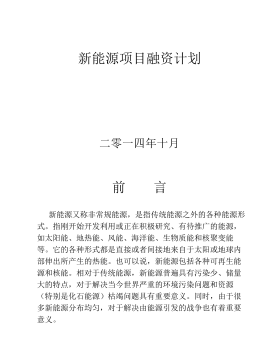
 2024-12-31 12
2024-12-31 12 -
新能源汽车运营服务公司商业计划书VIP免费
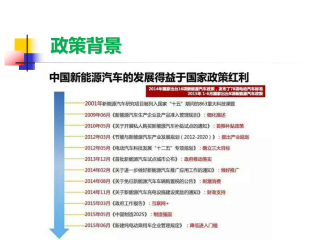
 2024-12-31 8
2024-12-31 8 -
上海xxx新能源股份有限公司商业计划书VIP免费

 2024-12-31 47
2024-12-31 47 -
绿特新能源商业计划书VIP免费
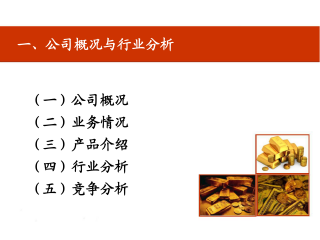
 2024-12-31 10
2024-12-31 10 -
关于新能源充电项目创业计划VIP免费
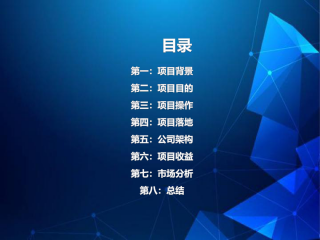
 2024-12-31 13
2024-12-31 13 -
太阳能充电器创业计划书模板VIP免费
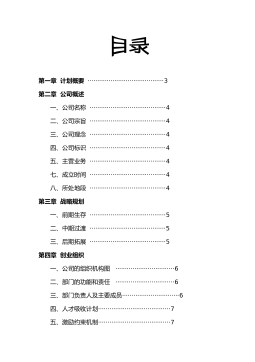
 2025-01-09 6
2025-01-09 6 -
中国新能源及节能环保材料项目商业计划书VIP免费
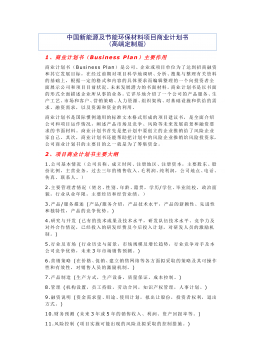
 2025-01-09 5
2025-01-09 5 -
中国(陕西)xxxx新能源股份有限公司VIP免费
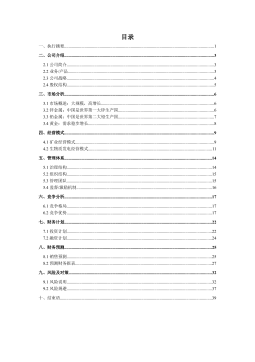
 2025-01-09 5
2025-01-09 5 -
阳光新能源公司创业计划书VIP免费
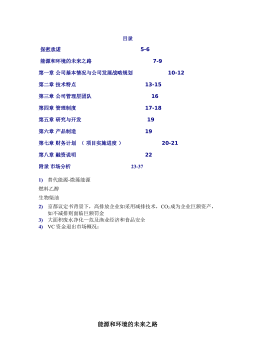
 2025-01-09 5
2025-01-09 5 -
新型纯电动安全汽车项目商业计划书VIP免费
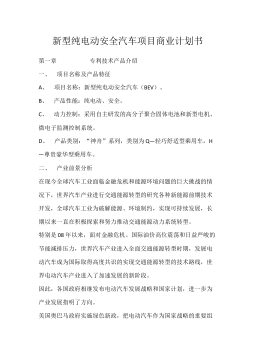
 2025-01-09 6
2025-01-09 6
作者:李江
分类:高等教育资料
价格:15积分
属性:73 页
大小:529.91KB
格式:PDF
时间:2024-11-06




